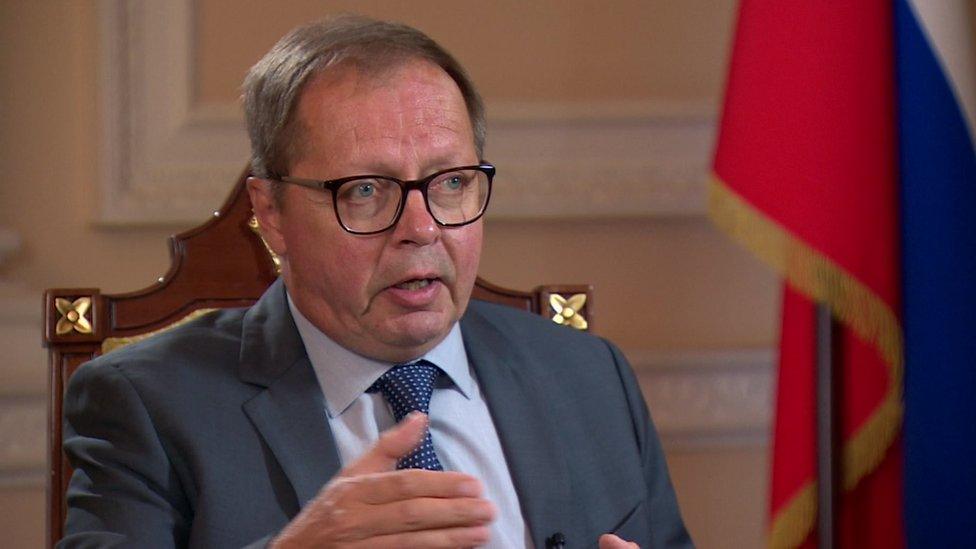Coronavirus: Hopes rise for EU recovery deal at marathon summit
- Published
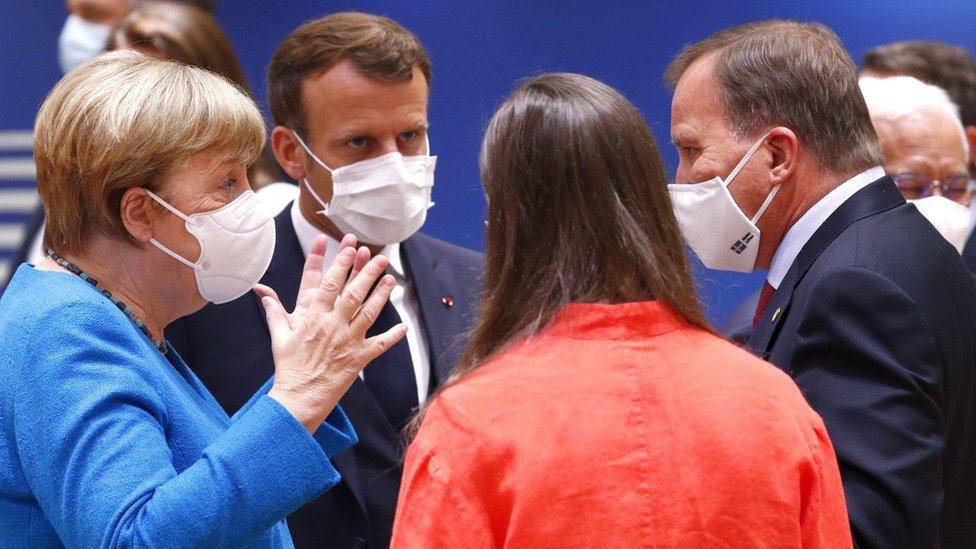
Mrs Merkel (left) and Mr Macron (second left) say there has been some progress
EU talks aimed at reaching an agreement on a huge post-coronavirus recovery fund have stretched into a fourth day but there are signs of progress.
Germany and France said a framework had now been sketched, during a summit in Brussels that has seen testy exchanges.
The main division is between hard-hit nations like Italy and Spain, and EU members who want to lessen funding.
So-called "frugal" nations want grants limited - and €390bn (£352bn; $445bn) appears the latest compromise figure.
They had argued the proposed €750bn overall package was too large and should be mostly loans.
The discussions - which were originally scheduled to end on Saturday - were to get under way again on Monday afternoon for what is now the longest EU summit since Nice 2000, when talks lasted five days.
The confirmed number of coronavirus cases has reached 14.5 million globally, according to Johns Hopkins University., external
What's hampering compromise?
Member states are largely split between those hit hardest by the outbreak - and keen to revive their economies - and those more concerned about the costs of the recovery plan.
Tempers have often been frayed. In the early hours of Monday, French President Emmanuel Macron reportedly banged his hand on the table and threatened to walk out.
However, as he arrived for the afternoon session, he was more upbeat, saying: "There were very tense moments, moments that will likely still be difficult but on this topic things have moved forward and we must now get into the details of the new proposal."
German Chancellor Angela Merkel bumps elbows with EU Council leader Charles Michel
The proposal concerns the main area of dispute - the amount to be paid out in grants. At least one earlier proposal on the issue had been put forward during the summit.
The self-proclaimed frugal four - Sweden, Denmark, Austria and the Netherlands - along with Finland, had opposed allowing €500bn to be offered in the form of grants to countries hardest-hit by Covid-19.
Led by Dutch PM Mark Rutte, they had set €375bn as the limit, plus conditions including the right to block requests. The others, including Spain and Italy, were refusing to go below €400bn. Diplomats say the figure of €390bn could now be the compromise.
German Chancellor Angela Merkel said: "Yesterday night, after long negotiations, we found a way to find a possible agreement. That is a step forward and we are hopeful that we can reach an agreement."
This is the first face-to-face meeting between leaders since governments began imposing lockdowns in March in a bid to stop the spread of the virus.
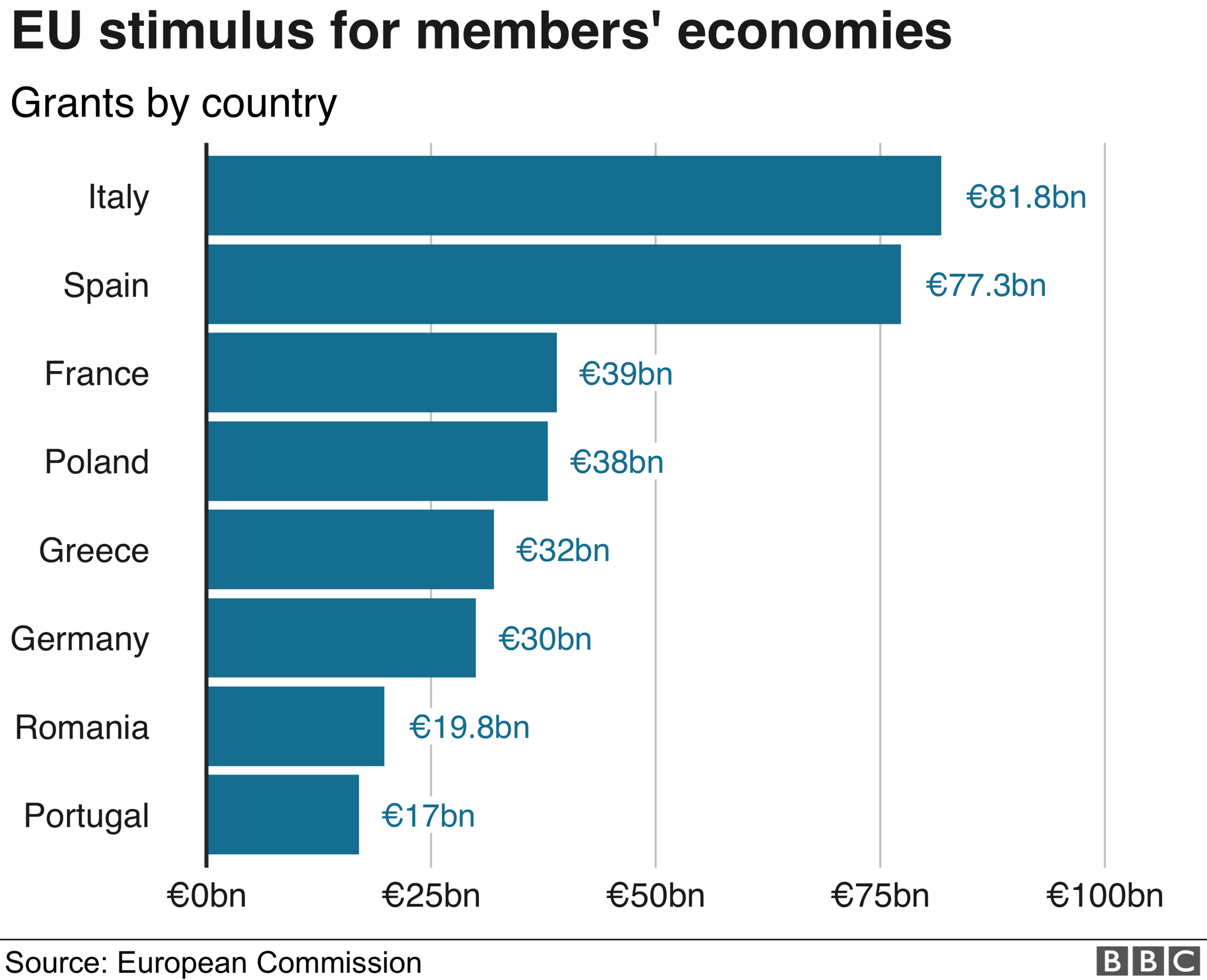

Italy was one of the earliest European countries to suffer an outbreak and has recorded 35,000 deaths - one of the highest tolls in the world.
PM Giuseppe Conte, who earlier complained that Europe was "under the blackmail of the 'frugals'", said he was cautiously optimistic a deal would be reached.
Even Mr Rutte said he was a "bit more hopeful".
On Sunday, Hungarian PM Viktor Orban had accused Mr Rutte of a personal vendetta and of trying to link financial help to political issues. Mr Orban, and his ally Poland, have threatened to veto the package if it adopts a policy of withholding funds from nations who do not meet certain democratic principles.
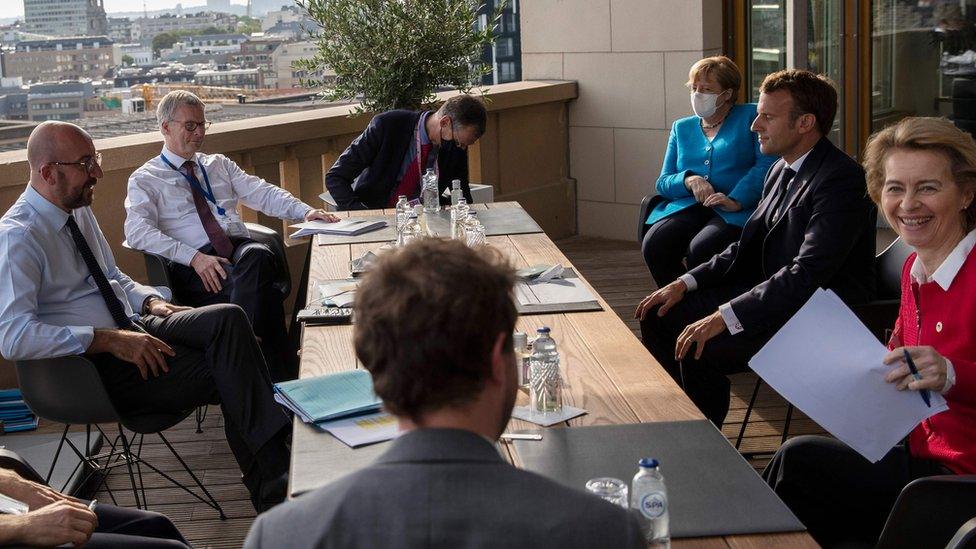
European Council President Charles Michel, left, with Angela Merkel, Emmanuel Macron and European Commission President Ursula von der Leyen, right
How tempers flared

This is now the longest European summit since Nice 20 years ago, which went into day five when leaders agreed to expand the membership. This time around, money is at the heart of the negotiations and the issue of trust is the cause of the quarrelling.
Tempers have flared, and there has been some name calling, too. Mostly at the Dutch leader, Mark Rutte. Bulgaria's leader Boyko Borissov accused Mr Rutte of "acting like the policeman of Europe". Hungary's Viktor Orban said, "It's Dutch guy who's to blame... I don't know why he dislikes us."
French officials tell me President Macron "banged his fists" on the table , as he told the "frugal four" that he thought they were putting the European project in danger. An Italian diplomat said Prime Minister Conte told Mr Rutte: "You might be a hero in your home country for a few days. But after a few weeks you will be held responsible for blocking an effective European response to Covid-19."
These negotiations may become known unofficially as the "stiff-leg summit" - a term being used by the Dutch here meaning that Mr Rutte has been sticking to his guns.
There was a notable show of social-distancing etiquette when the leaders first arrived, faces covered by masks. But photos from Sunday evening show that the masks have slipped, along, it seems, with their approach to diplomacy.


GLOBAL SPREAD: Tracking the pandemic
FACE MASKS: When should you wear one?
VACCINE: How close are we to finding one?

- Published18 July 2020
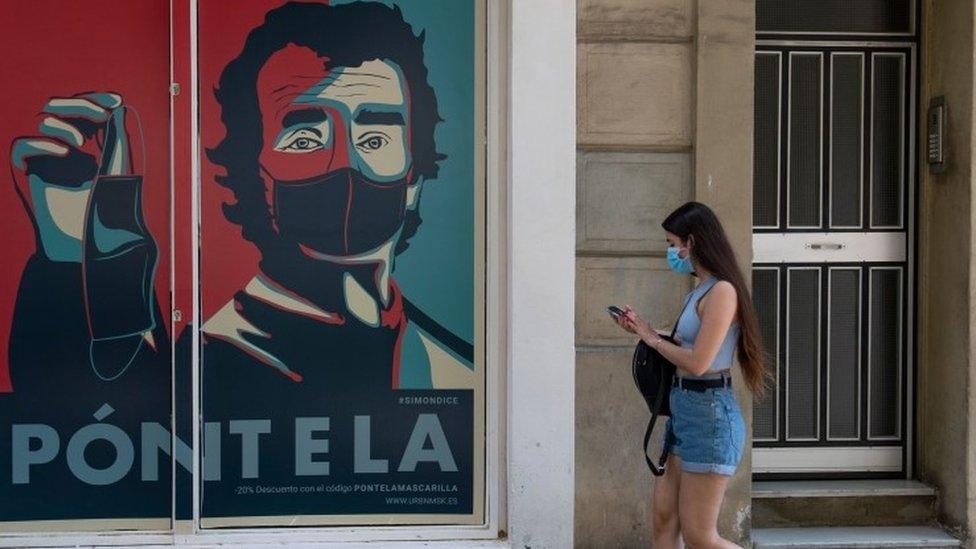
- Published18 July 2020
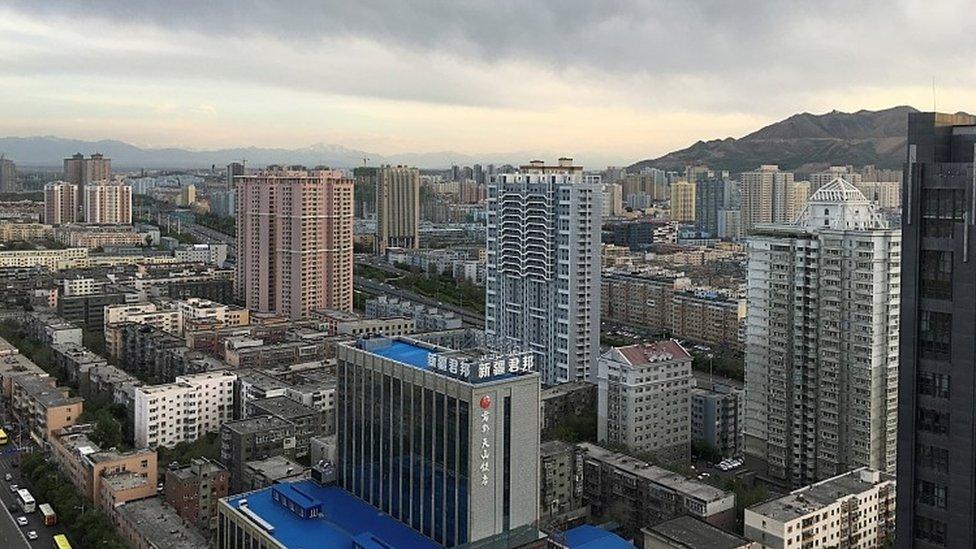
- Published19 July 2020
